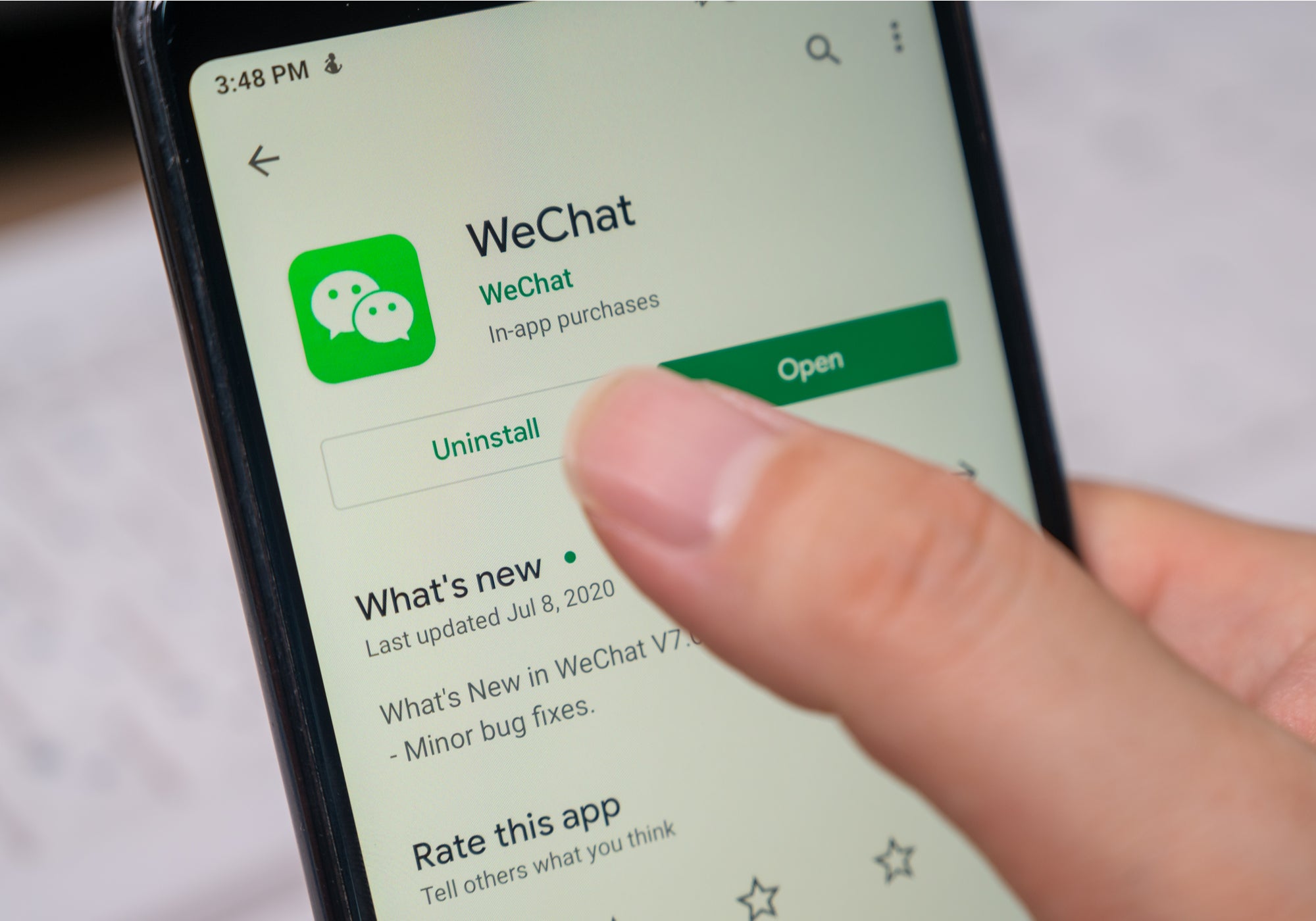
A US judge has blocked the Trump administration’s bid to ban Chinese-owned messaging app WeChat.
Last week, the Department of Commerce had announced a ban that prevented WeChat from listing on Google and Apple app stores on Sunday.
However, US magistrate judge Laurel Beeler in San Francisco yesterday said the WeChat ban raised “serious questions” about free speech, which are enshrined in the constitution’s first amendment.
A group of WeChat users filed a lawsuit against Trump’s executive order, which he announced on 6 August. The President cited national security concerns due to it being owned by Chinese tech giant Tencent. Tencent denies any allegations that it is a security risk and has previously described the ban as “unfortunate”.
The all-in-one app allows users to carry out a wide range of tasks, from messaging to payments to booking a taxi. It is used by more than a billion people per month in China. In the US it is used by less than 20 million people, almost exclusively by the Chinese and South-East Asian diaspora.
It is the primary method of communication between Chinese expats and students with their friends and family in China, where apps such as WhatsApp and Facebook Messenger are banned.

US Tariffs are shifting - will you react or anticipate?
Don’t let policy changes catch you off guard. Stay proactive with real-time data and expert analysis.
By GlobalDataTrump WeChat ban sparks “serious first amendment problems”
In her 22-page order, Beeler said the WeChat ban “burdens substantially more speech than is necessary to serve the government’s significant interest in national security, especially given the lack of substitute channels for communication”.
The preliminary injunction against the WeChat ban also puts a halt to other measures designed to block transactions between WeChat and US companies. WeChat is a popular medium for US advertisers to reach Chinese consumers.
Michael Bien, a lawyer for the WeChat users who brought the lawsuit, said: “The United States has never shut down a major platform for communications, not even during war times. There are serious first amendment problems with the WeChat ban, which targets the Chinese American community.”
The executive order, he added, “trampled on their first amendment guaranteed freedoms to speak, to worship, to read and react to the press, and to organise and associate for numerous purposes”.
Chinese-owned video-sharing app TikTok was also threatened with a US ban that had been due to kick in on Sunday. However, this has been postponed after Trump appeared to give his blessing to a deal that will see US tech giant Oracle and US retail behemoth Walmart take stakes in a spin-off company, TikTok Global.
Read more: Tencent revenues up 29% as execs insist Trump’s WeChat ban poses minimal risk







